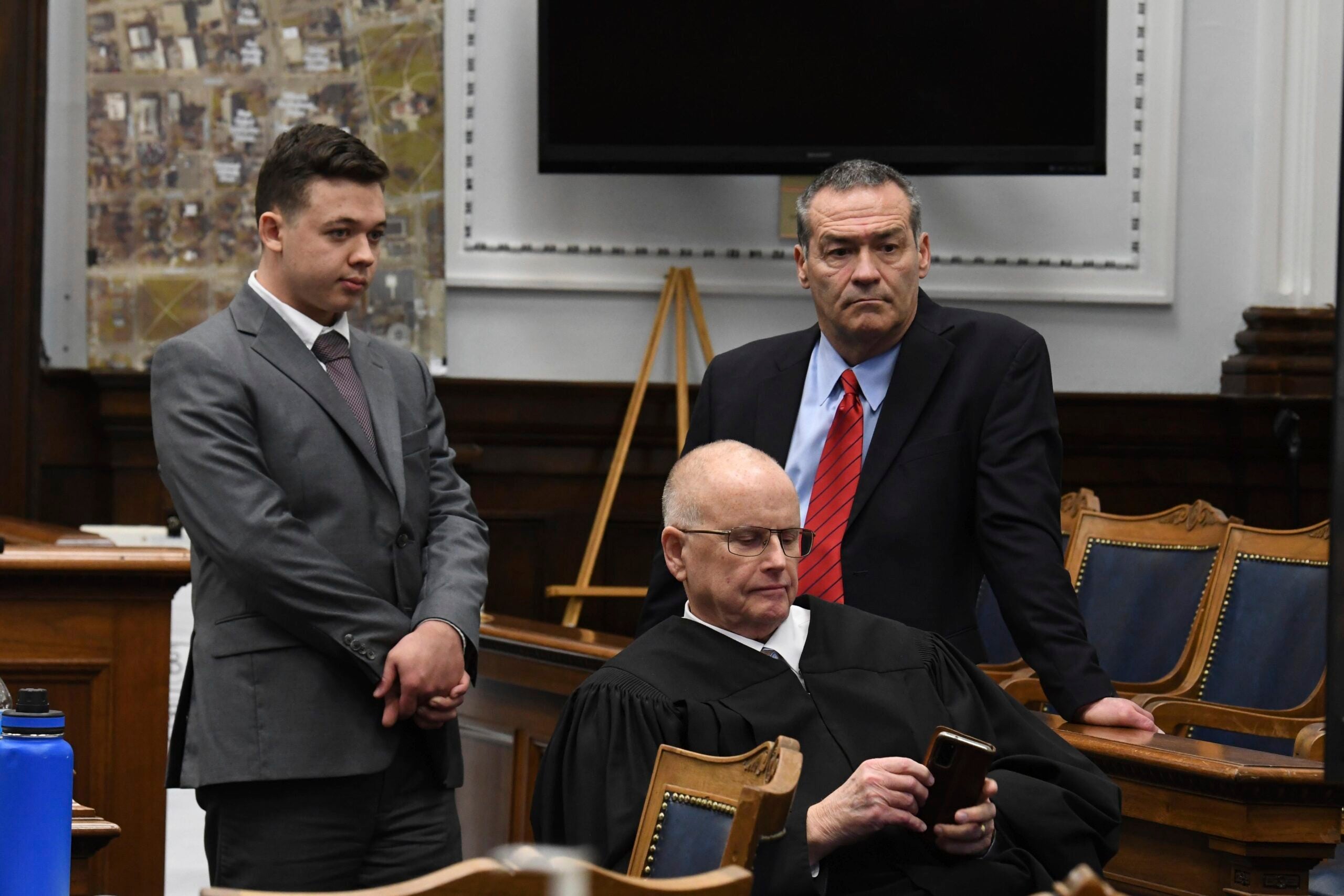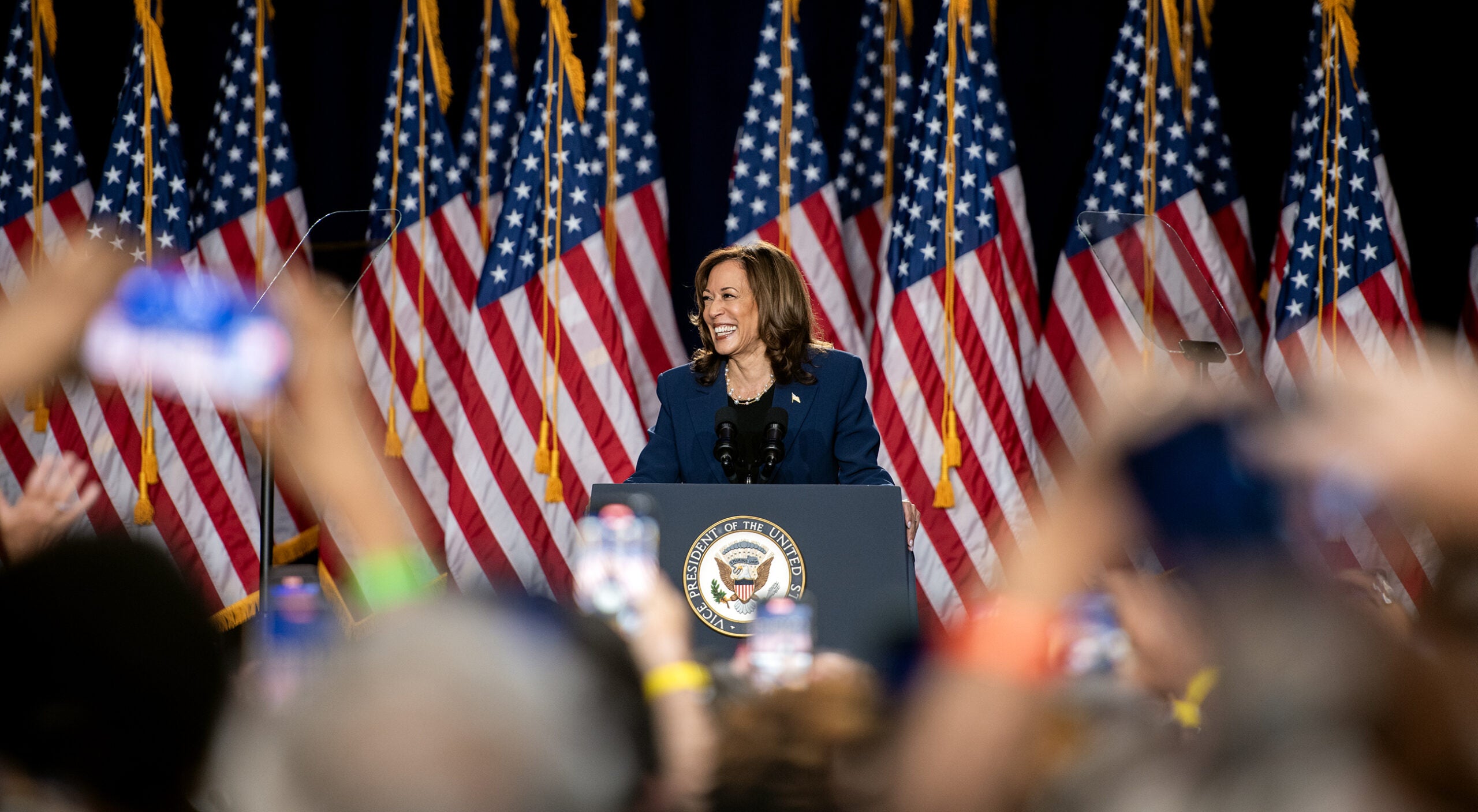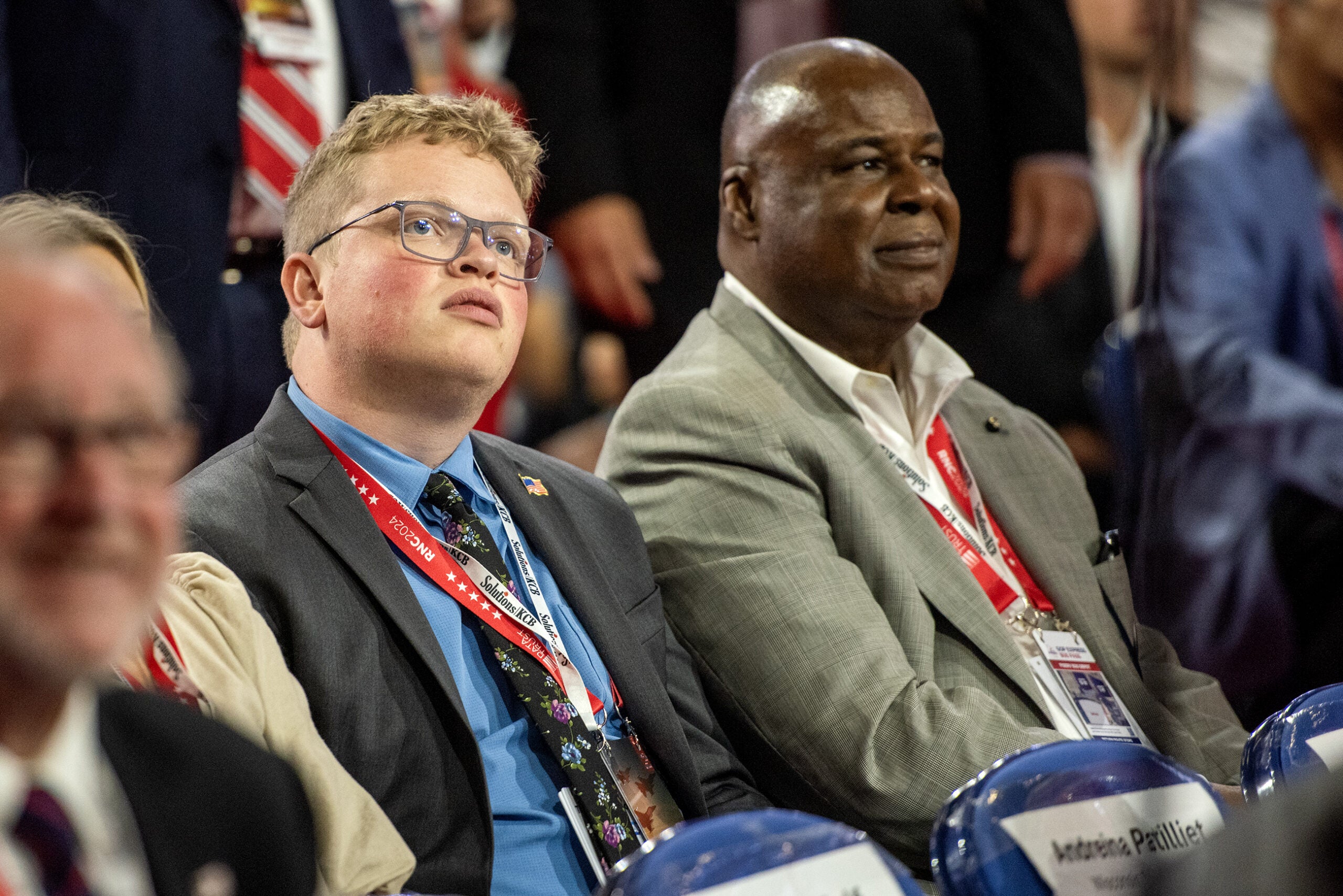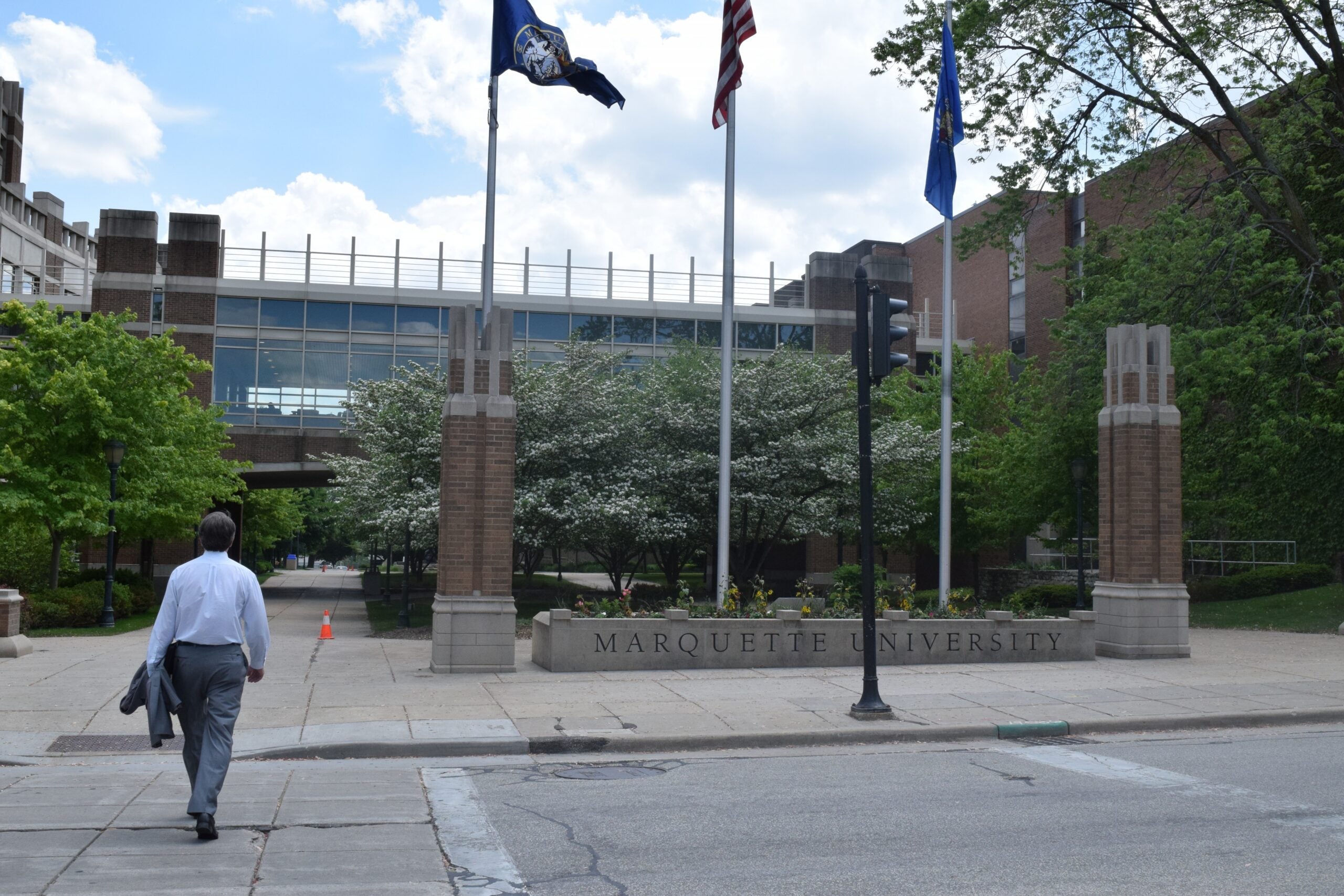Closing arguments in the case against Kyle Rittenhouse will take place Monday.
Rittenhouse, 18, shot three people, killing two, during protests in Kenosha last year. He faces multiple felony charges of homicide and recklessly endangering the safety of others, along with one misdemeanor count of possession of a dangerous weapon by a minor. He was 17 at the time of the shootings. If convicted, Rittenhouse could face life in prison.
On Friday, the judge overseeing the homicide trial said he is inclined to allow jurors to consider lesser charges against Rittenhouse. The jury could also consider second-degree intentional homicide, attempted second-degree homicide, first-degree recklessly endangering safety and second-degree recklessly endangering safety.
News with a little more humanity
WPR’s “Wisconsin Today” newsletter keeps you connected to the state you love without feeling overwhelmed. No paywall. No agenda. No corporate filter.
Rittenhouse’s lawyers argue that on Aug. 25, 2020, he was acting in self-defense when he killed Joseph Rosenbaum, 36, and Anthony Huber, 26, and wounded Gaige Grosskreutz.
A verdict is expected next week, according to NPR.
“I’d be shocked if there’s convictions on all the counts here,” Julius Kim, a Milwaukee-based criminal defense attorney who once worked as a prosecutor, told NPR. “I wouldn’t be surprised if he got acquitted of all, quite honestly.”
Gov. Tony Evers on Friday authorized 500 Wisconsin Army National Guard troops to come to Kenosha to support “hundreds” of local police officials, reports WMTV-TV.
Wisconsin DHS: COVID-19 Weekly Recap
COVID-19 activity in Wisconsin is rising again — cases and hospitalizations are up compared to recent weeks. Counties in the northwest part of the state are experiencing the most activity, reported the Wisconsin State Journal.
The seven-day average for new COVID-19 cases in Wisconsin is 2,649 as of Friday. The Wisconsin Department of Health Services has confirmed 8,722 total deaths from the disease.
55.1 percent of Wisconsinites are fully vaccinated — 83.7 percent of people age 65 and older and 45.2 percent of children ages 12 to 15.
The past, present and unknown future of Wisconsin’s wolf hunt
The wolf hunt, especially in Wisconsin, has been a contentious topic. Ron Seely of Isthmus partnered with Wisconsin wolf biologist Adrian Wydeven to venture into the Chequamegon National Forest, howling at wolves.
But they initially heard nothing in return, which Wydeven said was a “depressing” sign. Seely also met with Peter David, a biologist who oversees wolf management for the Great Lakes Indian Fish and Wildlife Commission.
Seely walks readers through the history of the wolf hunt in Wisconsin, as well across the nation, the politics of it all and his interactions with wolf 475.
“Acceptance of wolves has been blunted in recent years by the conservative politics that has largely controlled wolf management and misleads the public with inaccurate data and repetitions of the old untruths that drove the bounties and now shapes the hunts,” Seely writes.
Wisconsin sports recap
On Monday, the Milwaukee Bucks visited the White House. They’re the first NBA team to be invited since the Cleveland Cavaliers in 2016.
“The first time an NBA championship team visited the White House was in 1963 when President Kennedy hosted the Boston Celtics,” said President Joe Biden. “A few months later, in August, Bill Russell returned to Washington, this time to stand on the steps of the Lincoln Memorial to hear Dr. King and his speech, ‘I Have a Dream,’ in front of the whole nation. Today, I’m honored to welcome the Milwaukee Bucks to continue that tradition.”
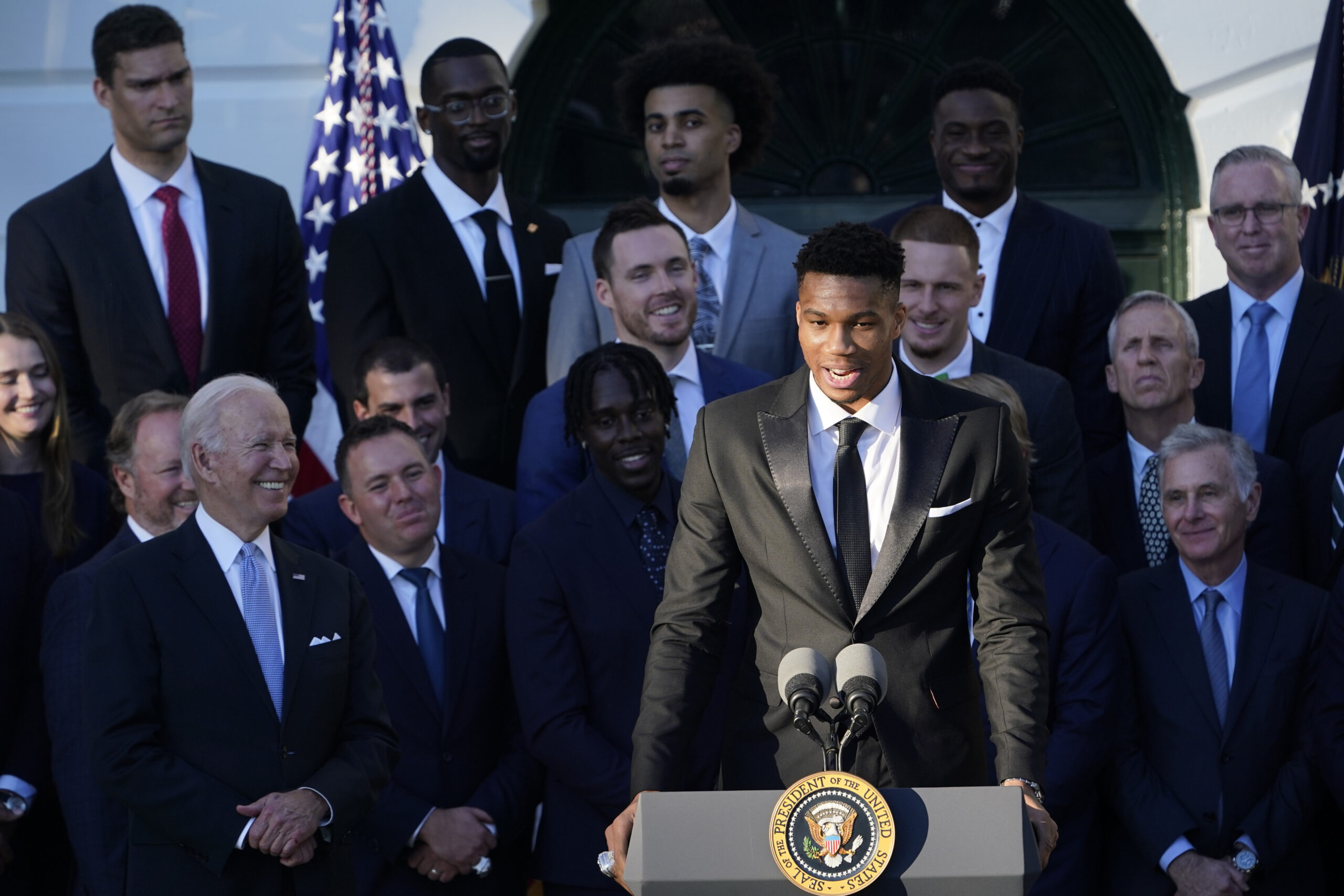
Green Bay Packers quarterback Aaron Rodgers has made national headlines following his contraction of COVID-19, which exposed the fact he is unvaccinated against the disease, when many believed he was after he had told reporters he’s “immunized.”
NFL officials fined the Packers, Rodgers and wide receiver Allen Lazard for violating the league’s COVID-19 safety protocols.
Josh Hader of the Milwaukee Brewers was named the best relief pitcher in the National League for the third time in four seasons. He was awarded with the 2021 Trevor Hoffman NL Reliever of the Year title Wednesday.
Biden appointments to Wisconsin USDA positions
On Nov. 4, President Joe Biden appointed two experts from rural Wisconsin to the state U.S. Department of Agriculture, reports the Wisconsin Examiner.
Eugen Schriefer is a senior outreach specialist with UW-Madison Extension. He was appointed to executive director of the Farm Service Agency.
Julie Lassa ia a former state legislator, who served for 18 years in the state Assembly and Senate. She was appointed to the state’s rural development director.
“These regional appointees will be critical to the President’s efforts to rebuild communities most impacted by the pandemic, the economic recovery, and climate change,” said a statement from the White House. “They bring deep expertise in their issue areas as well as critical relationships with federal, state, tribal, and local leaders. And, consistent with the President’s commitment to building an administration that looks like America, these regional appointees represent the diversity of America and the communities they serve.”
Lack of affordable housing is a big barrier in refugee resettlements
Around 150 Afghan refugees have resettled across Wisconsin, according to Wisconsin’s Department of Children and Families, which houses the refugee bureau.
Many of these families are struggling to find affordable housing, particularly in Madison, reports WISC-TV/Channel3000, due to a combination of various cultural and financial factors as well as timing.
“There’s all kinds of housing that is off-limits because the landlords will not consider renting to this group of people because they don’t meet the criteria,” said Becca Schwartz, resettlement director for Jewish Social Services.
Refugees and programs that support them need resources for groceries, household and hygiene products, clothing and other fees. To donate winter clothing, visit this Open Doors for Refugees webpage.
The Thanksgiving that wasn’t: Centering the Wampanoag Nation
Thanksgiving is coming up. And we are so thankful for you, dear reader.
But there is a long history at play when it comes to Turkey Day: “There was likely no turkey served. There were no feathered headdresses worn. And, initially, there was no effort by the Pilgrims to invite the Wampanoags to the feast they’d made possible,” writes the Washington Post.
Members of the Wampanoag Nation greeted the pilgrims traveling on the Mayflower in 1621, now 400 years ago. For the tribe, and many other Indigenous groups in the United States, the Thanksgiving holiday is not a day for celebration, but rather a day of mourning.
European settlers arrived on the land in 1620, and it wasn’t until spring of 1621 when Chief Ousamequin first interacted with the strangers.
“It wasn’t that he was being kind or friendly, he was in dire straits and being strategic,” Steven Peters told the Post. “We were desperately trying to not become extinct.”
The biggest fact check of the story may be that the Wampanoag were not actually invited to the pilgrim’s “harvest feast” that fall.
Ousamequin and tribe warriors showed up because the colony had shot off some of their muskets, and the Wampanoags took the action to mean they were going to war. Once realizing the misunderstanding, the tribe joined the Europeans at the feast.

